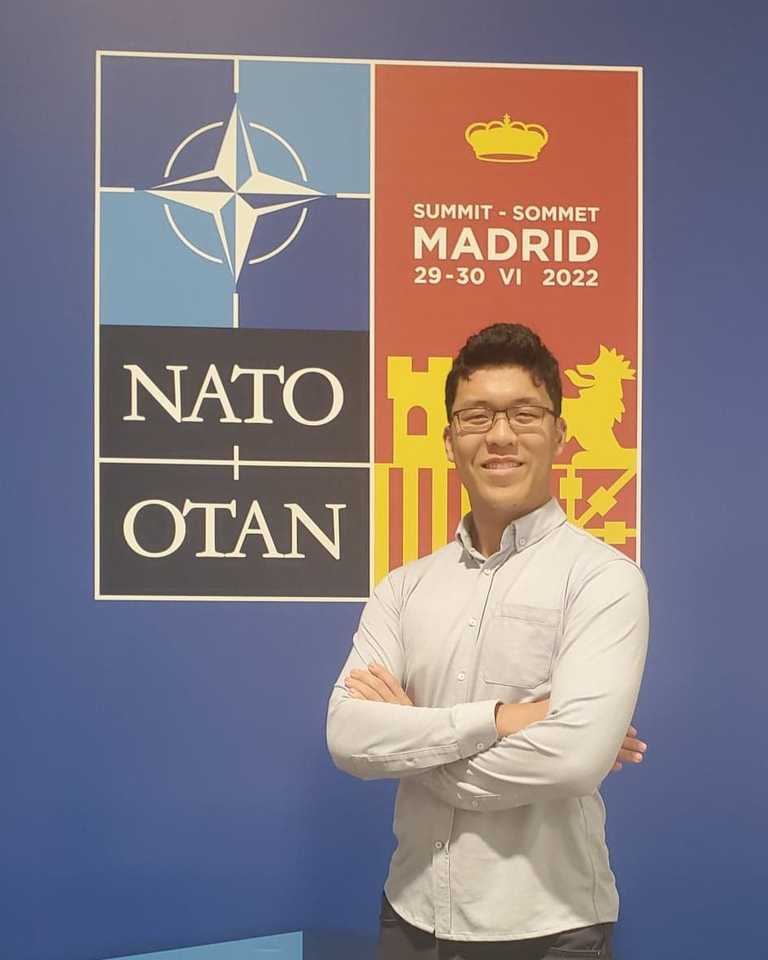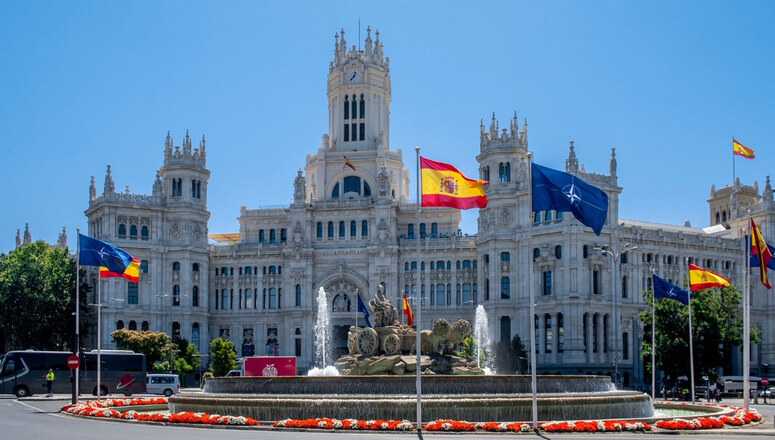I briefly became a journalist, for a couple weeks in the summer of 2022.
Folks I knew were interested in covering the Russian invasion of Ukraine, and we found that NATO was holding what folks considered one of the biggest events of the last several decades.
Needless to say, I wanted to be there.
Well, it turns out that NATO is happy to certify you as a reporter, as long as you have a letter from an editor saying that you're a reporter. A quick text to a friend over at The Tech (the student newspaper of MIT), and we were in.
So we showed up on a sunny Wednesday in Madrid. I received a NATO press pass, and a conference goodie bag, at a high school that they'd secured top-to-bottom. Over the next few days, our crew worked morning-to-night, attending press conferences, getting photos, and collecting statements. I ended up putting out a couple of news pieces, my first dip ever into journalism.

A couple big things happened at the summit.
Sweden and Finland worked out their differences with Turkey, paving the way for their accension into NATO. A multi-billion dollar aid package was approved for Ukraine. The 2022 NATO Strategic Concept was approved and released.
I saw Boris, Macron, Merkel, Biden, Erdoğan, Stoltenberg (Stulty, as the career correspondents called him). That was one of the last official sightings of Boris, before his resignation. The foreign minister of Turkey, Mevlüt Çavuşoğlu, sat next to us and helped translate Erdoğan's press conference, as an excuse to flee his crowd of reporters.
It's mystifying how these things work. A couple of hours spent shaking hands, getting photos, and chatting in a room, and global geopolitics gets decided. Everything is arranged ahead of time, of course; press conference after press conference just makes these decisions public.
It was pretty strange to understand that every single delegation operated in its own media environment. Each press conference, aside from the US and NATO Sec Gen ones, was attended largely by media organizations from that country. All the questions were geared towards domestic pieces for a domestic audience.
Here's a couple random things I learned:
- Security is a big deal; they make you turn all of your electronics on when you walk in the door, to make sure they're real. Make sure your things are charged!
- Newspapers are going kaput - print journalism can really only afford to send a couple wire-service reporters; the majority of press folks there are broadcasters.
- The schedules and delegation press conferences are scheduled willy-nilly, sometimes day of. Call the national delegations to stay up-to-date.
- To ask a question at most press conferences, let the delegation's press contact know. They'll often mosey around the press conference room a few minutes before the conference - flag them down!
- Everyone asks precisely two questions at once, when called on after a press conference. There is no back-and-forth.
- The American journalists really bring out the spit and polish for Biden. Air Force One and the White House press pool carries a special podium just for the president!
- The POTUS always only takes questions from mainstream american media, and the list is arranged well ahead of time. It's clear that the country with one of the strongest free press also has the strongest defenses against a free press.
- Everything runs late - sometimes by more than two hours.
